In 2019, the well-known Abkhaz state and public figure Valerian Kobakhia would have turned 90 years old. For this date, the WAC web info portal publishes an essay about him.
Arifa Kapba
Valerian Kobakhia was born on May 15, 1929 in the village of Lykhny. He hardly remembered his father: the boy was about five years old when he died. However, Kobakhia knew well the history of the ancestors.
Those who returned to their homeland
The fate of his father was not easy, although it was similar to the fate of many Abkhaz who were evicted from their native lands in the 19th century.
Here is what the son of Valerian Kobakhia Beslan recalls from the family history: “My grandfather Osman and his four brothers were evicted to Turkey. The only one who was able to return home was a grandfather. He tried three times to return to Abkhazia, but [again] returned to Turkey. First, on horseback, and the last time on the ship, the five of them [with comrades] landed in the city of Odessa and asked there how to get to Abkhazia.”
These five were pointed the way along the sea. The walking path took about six months. On the way, one of them fell ill, exhausted from fatigue, but they did not leave anyone, did not leave halfway, and so they all managed to get to Abkhazia alive.
“I know that from this journey, if it can be called a journey, my grandfather left such an opinion about the Russians: “they have a bad king and good people.” This is understandable: for six months they went to Abkhazia, not knowing the language, they were helped by local residents, those whom they met on the way, and thus they came home,” says Beslan Kobakhia.
Osman Kobakhia was married three times, and he had children from all marriages. So, in the family of Valerian’s father and mother there were eight of them, although Osman married seventeen years old Maka Khetsia for the last time at the old age of 63, the future mother of Valerian. Her parents were also migrants from Abkhazia to Turkey. She was born on a ship that took away a family from her native lands, and the girl immediately became half orphaned: her mother died in childbirth. Soon her father died and her elder brothers actually raised her.
Some of the children of Osman Kobakhia and Maka Khetsia died in infancy. Two siblings of Valerian - Arutan and Mkhaz - went to the fronts of the World War II and did not return.
Study and meteoric rise
In 1944, Valerian Osmanovich Kobakhia entered the Sukhum Pedagogical School, later transformed into the Sukhum State Pedagogical Institute. He graduated from the faculty of Russian language and literature. After the institute, Kobakhia went to teach at the Lykhny High School, where he worked for about two years, and then was invited to work in the Komsomol. In 1953 he became the second, and later the first secretary of the Gudauta district Komsomol committee.
Valerian Kobakhia’s party career was swift. In 1962, he became the first secretary of the Gudauta district party committee, and in 1965 - the first secretary of the Abkhaz regional party committee.
“He held this position for 10 years, - says political analyst and Ph.D. Konstantin Dumaa, who knew Kobakhia’s activities as party leader. - The leader, above all, is judged by the way he coped with his duties, how he managed to unite people. Valerian Osmanovich coped with all this perfectly well.”
In those years when Valerian Kobakhia headed the regional party committee and was in fact the first person in the state, the Republic achieved considerable success in the sphere of economy, education, and culture. Konstantin Dumaa compares Kobakhia with the captain, who “led the ship of Abkhazia in the right direction”, noting that Valerian Osmanovich was a very strict leader, demanded from his subordinates a lot of discipline and strict performance of official duties. He personally heard quarterly reports from managers and the demand was the highest. All those who showed incompetence were punished - up to the release of the post.
Excellent profession
However, not everything was so serene. During the period of active state activity of Kobakhia, especially after 1972, when Eduard Shevardnadze came to power in Georgia, Valerian Osmanovich had many opponents, those who, trying to please Tbilisi, were eager to remove him from the leading post.
“The Georgian regime was looking for nationalism among the Abkhaz, - notes Konstantin Dumaa. - They measured everyone in terms of loyalty to Tbilisi. This intensified under Shevardnadze. He sent here a huge number of Georgians to senior positions: the police chief was a Georgian, the second secretary under Valerian Osmanovich was a man by the name of Sakvarelidze. Most of the cadres sent here were engaged in whistle-blowing and spying on Abkhaz cadres.”
At that time, attempts began to remove the “disloyal” towards Tbilisi Valerian Kobakhia from the post. Once Shevarnadze arrived in Sukhum to hold a meeting of the party activists. It got to the point that even two Abkhaz came forward trying to defame the name of Kobakhia.
“One of them accused him of being against the collective farms, another “comrade” floated and said that Valerian Osmanovich had set an “iron gate” on the Ingur river, trying to show Shevardnadze what Kobakhia was a nationalist, as “he doesn’t allow” a Georgian here. After listening to these two, Kobakhia himself spoke, so much so that everyone sat down without breathing,” says Dumaa.
The inspections became more frequent, there were many denunciations of Valerian Kobakhia, many tried to dig on him, but they did not succeed in removing him, and then Shevardnadze decided to lure him away simply to Tbilisi by offering him one of the ministerial chairs.
“Father decisively refused this, - recalls Beslan Kobakhia. - And then Shevardnadze asked him what he would do, and Valerian Osmanovich responded that he had an excellent profession, he was a teacher, and, if necessary, he would teach in one of the Abkhaz schools.”
Absolutely fearless and respected by all
Konstantin Dumaa emphasizes that Valerian Kobakhia and Boris Adleyba who succeeded him in the post were people respected by the people who were absolutely available in communication for everyone who wanted to address them on certain issues, “flesh and blood of the people”.
“In my lifetime, these two were the most solid and respected leaders. When Valerian Osmanovich and Boris Viktorovich appeared together in public at some meeting, public event, people surrounded them and communicated with them with pleasure,” says Dumaa.
Many Abkhaz, who were charged with criminal cases and imprisoned in Tbilisi, were so respected by Valerian Osmanovich that even during torture and interrogation when they were forced to testify against Kobakhia, they did not testify against their leader. Such are the examples of Leonty Kvarandziya and Gregory Ashkharua, who were arrested at various times and held in prison in Tbilisi and used unlawful detention measures against: none of them thought to betray Valerian Osmanovich.
“Handsome, stately, very patient, absolutely fearless, he knew how to stay in society, was balanced, not impulsive, never allowed himself too emotionally to react to the comments addressed to him, which, of course, were there,” says Dumaa.
In 1975, Valerian Kobakhia was elected secretary of the Presidium of the Supreme Council of the Abkhaz SSR, later - chairman of the Presidium. During this period, on the initiative of Valerian Kobakhia, for the first time, a department was opened in the Presidium of the Supreme Council for working with compatriots abroad; this was a unique case - before that, there were no such departments in the Soviet executive power system.
“My father never clung to any post, he held these positions not because he was very eager for them, but [just] the circumstances were so formed,” the son notes, recalling that Kobakhia left the official chair as soon as he understood that the new time has come, and it is time to give in to the young. “The only thing at the very last stage on the eve of the collapse of the USSR was that he often went to Moscow and was eager to sign a new union treaty, and then the events followed a completely unpredictable scenario, the August coup occurred (August 18-21, 1991, an anti-constitutional seizure of power took place in Moscow - ed.). After that, it became obvious that there would be no signing of the union agreement, and then the father completely without any hesitation left the post of the chairman of the Presidium of the Supreme Council of Abkhazia, giving it up to Vladislav G. Ardzinba,” explains Beslan Kobakhia.
“Father is there, we cannot let him down”
In his spare time, Valerian Kobakhia liked to read the novelties of Abkhaz literature, which appeared in the Abkhaz language: poetry was often read by Bagrat Shinkuba, with whom he was close friends.
“He was a very strict man, but he never raised his voice. We saw him at home rarely. When I woke up, he was no longer there, when I fell asleep, was not there yet, because the work took all his free time. However, at the same time I always knew that father is there, that we cannot let him down. As a child, I did not understand that he occupied some important positions; it seemed to me that everyone had the same parents as me. We have never been brought up in conditions of permissiveness.”
Valerian Kobakhia died by Caucasian standards of longevity early: he was only 63 years old. “It happened after the outbreak of the war on August 28, 1992, - recalls Beslan Kobakhia. - We managed to take him out of the town to Lykhny, he was already seriously ill. He died there and was buried in the family cemetery.”
Summing up, one can develop the thought of Konstantin Dumaa about the “captain” on the “bridge” of the state ship: it is very important that contemporaries do not forget about the “helmsmen” of the Republic, and the younger generation to know the merits of Abkhaz leaders of different eras. A bright politician and a person with a strong character who achieved success in state and public activities, Valerian Kobakhia contributed to the fate of Abkhazia and left his individual autographs in its history.
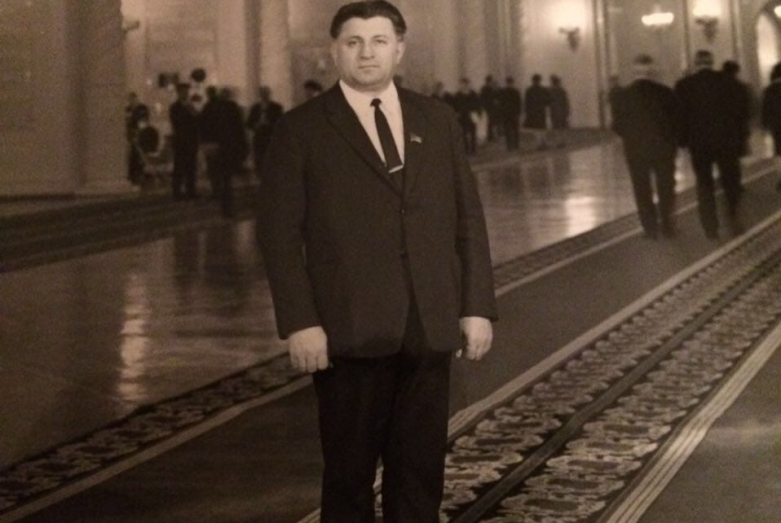
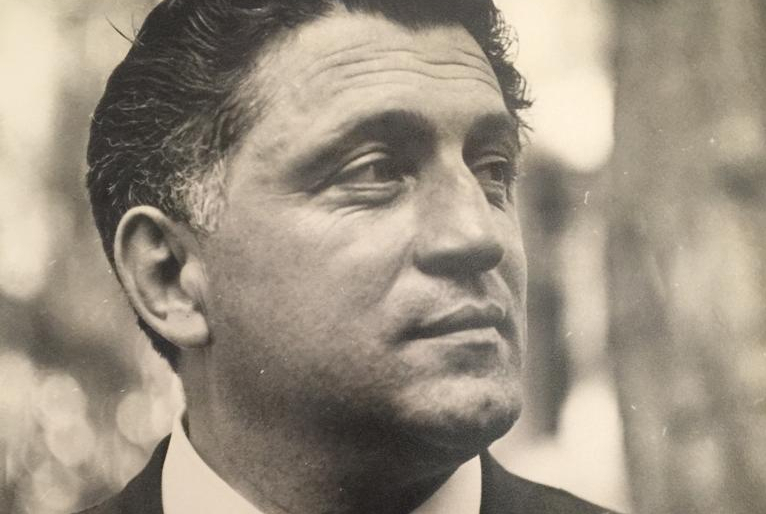
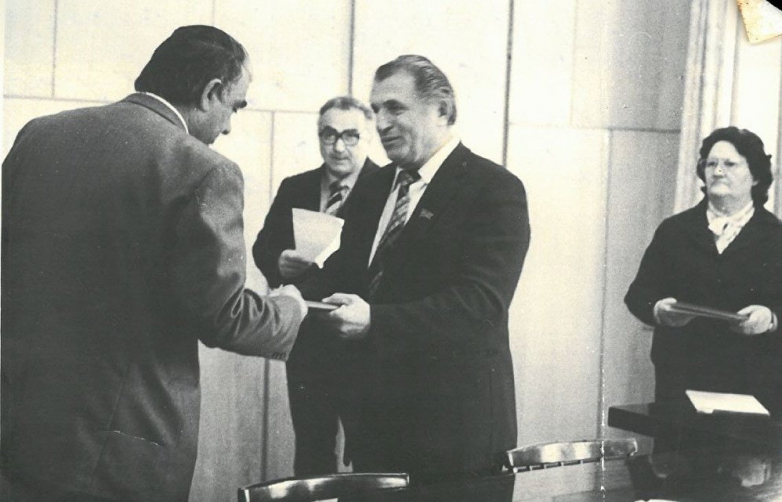
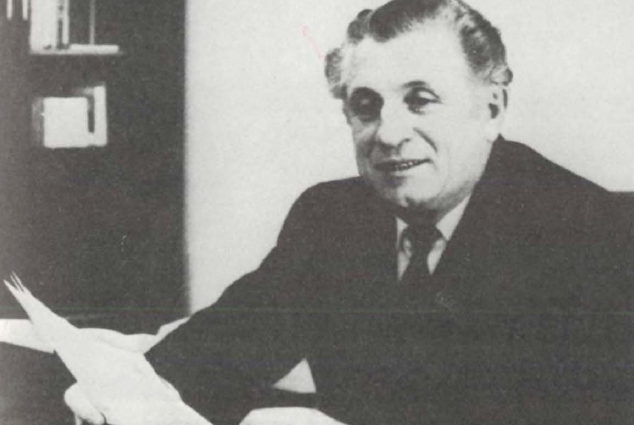
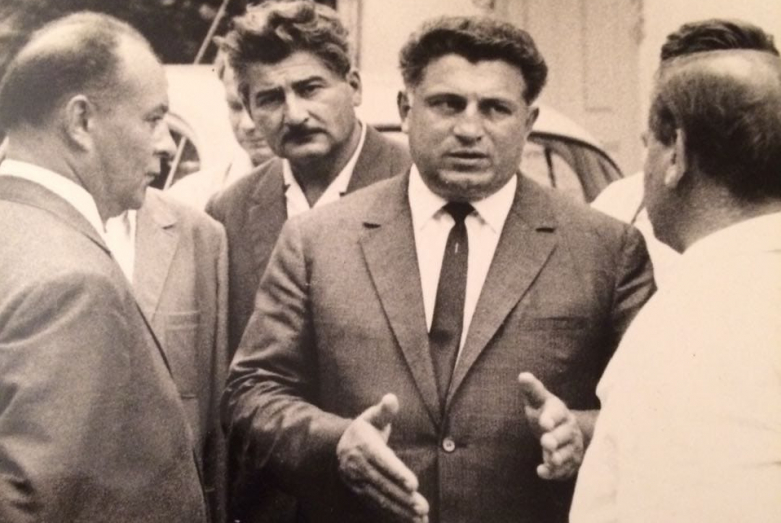
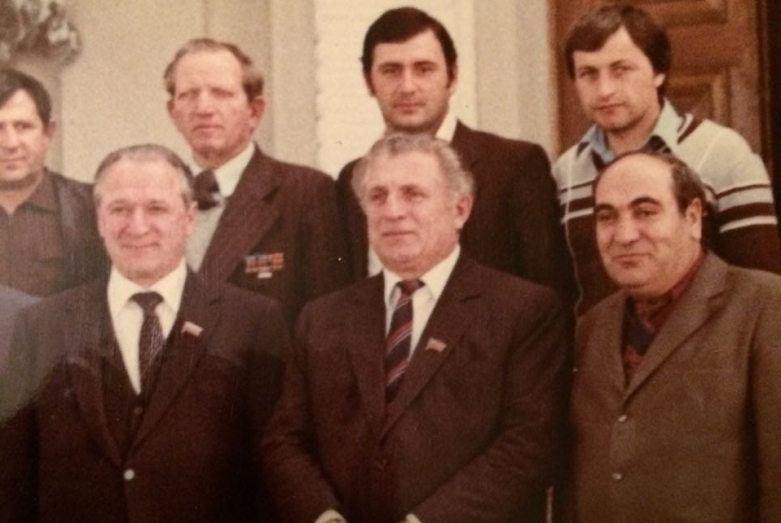
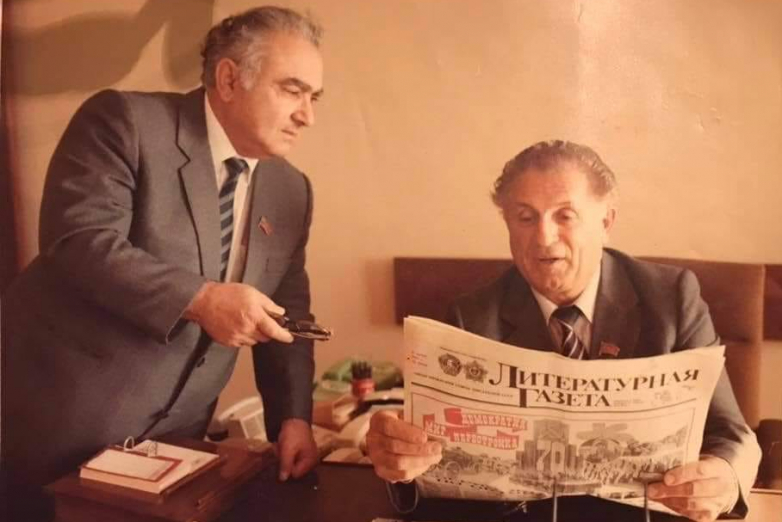
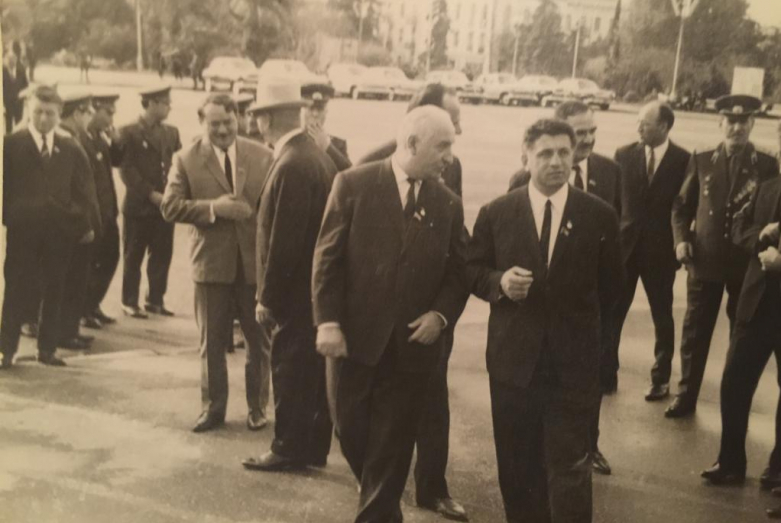
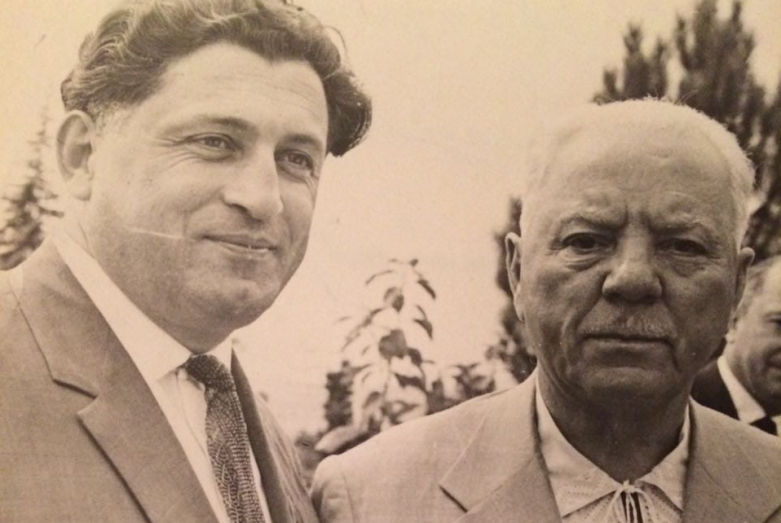
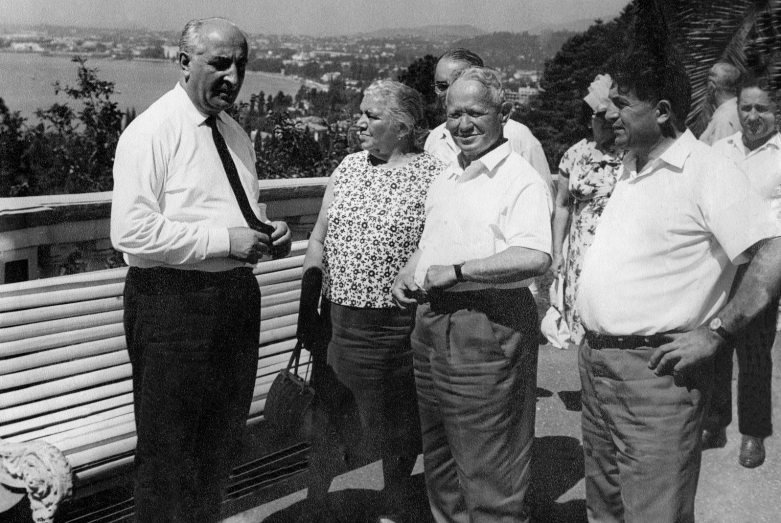
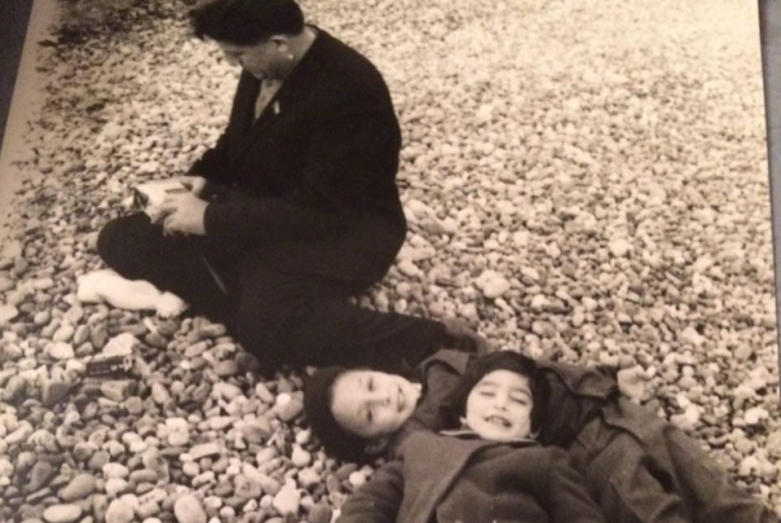
to login or register.